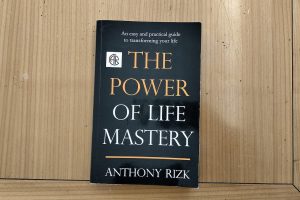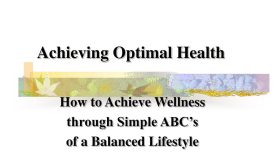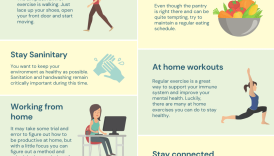The Power of Masterbooks: Your Key to a Balanced and Healthy Life

Understanding Masterbooks
In today’s fast-paced world, mastering the art of balance is more crucial than ever. Masterbooks, a term that resonates with the concept of writing the narrative of one’s life, encourages individuals to take control and pen down their values, goals, and emotional landscapes. It emphasizes the importance of self-awareness and understanding one’s strengths and weaknesses. For instance, one might reflect on how a daily journaling practice can help clarify thoughts and bring focus to what truly matters. Life is not just about surviving; it’s about thriving and creating a harmonious existence where personal growth, mental clarity, and emotional health can flourish. By navigating through one’s personal masterbook, individuals can create a roadmap for a more fulfilling life.
- The Power of Masterbooks: Your Key to a Balanced and Healthy Life
- Understanding Masterbooks
- Importance of Balance in Life
- Mental Health Benefits
- Mindfulness Practices
- Stress Management Techniques
- Physical Well-being
- Exercise and Fitness Routines
- Nutrition and Healthy Eating Habits
- Emotional Wellness
- Developing Emotional Intelligence
- Building Resilience and Coping Strategies
- Social Connections
- Nurturing Relationships
- Building a Support System
- Spiritual Growth
- Finding Inner Peace
- Practicing Gratitude and Positivity
Importance of Balance in Life
Achieving balance is like walking a tightrope; it requires skill, focus, and practice. When all aspects of life—mental, physical, emotional, social, and spiritual—align, individuals often feel more grounded and harmonious. Consider the following elements that foster balance:
- Mental Clarity: Clear thinking helps in decision-making.
- Physical Health: Regular exercise and nutrition support overall well-being.
- Emotional Awareness: Recognizing and expressing emotions can lead to healthier relationships.
- Social Connections: Building a supportive community nurtures a sense of belonging.
- Spiritual Growth: Engaging in practices that promote inner peace fosters resilience.
Reflecting on personal experiences, maintaining balance might come from setting boundaries at work to ensure family time or practicing mindfulness to alleviate stress. Mastering these aspects of life ultimately leads to greater satisfaction and joy, shaping a well-rounded and enriched life.
Mental Health Benefits
Mindfulness Practices
As we delve deeper into the mental health benefits of leading a balanced life, the practice of mindfulness emerges as a powerful tool. Mindfulness invites individuals to anchor themselves in the present moment, cultivating a heightened awareness of their thoughts, emotions, and surroundings. This practice not only enhances mental clarity but also serves as a buffer against stress. Imagine taking just five minutes out of your day to engage in mindful breathing. By focusing solely on your breath, you can quiet the noise of daily distractions. Here are some effective mindfulness practices to integrate into your routine:
- Meditation: A simple practice of sitting quietly and observing thoughts as they come and go.
- Mindful Walking: Paying attention to each step and the sensations of your feet touching the ground.
- Gratitude Journaling: Writing down three things you’re grateful for each day can shift your mindset positively.
Stress Management Techniques
In continuation, effective stress management techniques can significantly bolster mental well-being. Stress is insidious; it creeps into daily life, affecting work performance and personal relationships. However, incorporating specific strategies can help mitigate its effects. Consider the following stress management techniques:
- Time Management: Prioritizing tasks and breaking them into manageable segments can prevent overwhelm.
- Engaging in Physical Activity: Exercise stimulates endorphin production, which helps reduce stress naturally.
- Deep Breathing Exercises: Simply inhaling deeply and exhaling slowly can calm the mind in moments of anxiety.
Reflecting on personal experiences, implementing these techniques can lead to a more balanced and fulfilling life. For instance, after a taxing day, a quick jog or simple meditation can work wonders, allowing for a fresh perspective and renewed energy. Together, mindfulness and stress management equip individuals with the necessary tools to navigate life’s challenges more effectively.
Physical Well-being
Exercise and Fitness Routines
Transitioning from mental health to physical well-being reveals a profound connection between how we feel mentally and how we take care of our bodies. Regular exercise and well-structured fitness routines are crucial to maintaining physical health and enhancing overall life quality. When individuals incorporate movement into their daily lives, they often experience increased energy levels and improved mood, contributing to that much-desired balance. Consider exploring various workout formats to discover what excites you:
- Cardiovascular Activities: Xtreme Activities like running, cycling, or swimming promote heart health and enhance endurance.
- Strength Training: Incorporating weights or resistance exercises helps build muscle mass and boosts metabolism.
- Flexibility and Balance: Practices such as yoga or Pilates improve flexibility, reduce the risk of injury, and promote relaxation.
For example, starting a morning routine that includes a 20-minute workout can invigorate the day ahead, making participants feel accomplished and refreshed.
Nutrition and Healthy Eating Habits
Equally important to physical well-being is nutrition. The foods we consume fuel our bodies, influencing everything from energy levels to mood. Adopting healthy eating habits can significantly impact both physical and mental health. Here are some nutrition principles to consider:
- Balanced Diet: Aim for a colorful plate filled with fruits, vegetables, whole grains, and lean proteins.
- Hydration: Drink water consistently throughout the day; dehydration can lead to fatigue and poor concentration.
- Mindful Eating: Pay attention to what you eat and savor each bite, which can lead to better digestion and satisfaction.
Sharing a personal anecdote, after committing to meal prep on Sundays, one might find that the whole week becomes smoother and healthier, avoiding the temptation of fast food. Balancing exercise with nutritious eating not only enhances physical health but also reinforces good mental well-being, making it essential for an enriched lifestyle.
Emotional Wellness
Developing Emotional Intelligence
Continuing from the discussion of physical well-being, emotional wellness plays an equally vital role in achieving an overall balanced life. At the heart of this is emotional intelligence (EI)—the ability to recognize, understand, and manage our own emotions while also empathizing with others. Developing emotional intelligence can significantly improve relationships and enhance personal happiness. Consider incorporating these practices into your daily life to boost your emotional intelligence:
- Self-Reflection: Regularly take time to reflect on your feelings and reactions. What triggered a specific emotion? Understanding your emotional responses can be enlightening.
- Active Listening: When engaging with others, focus completely on what they’re saying without formulating your response in advance. This fosters deeper connections.
- Empathy Exercises: Try putting yourself in someone else’s shoes to strengthen your understanding of their perspective and feelings.
For instance, reflecting on a recent conflict with a friend can illuminate both sides of the argument, fostering a better understanding and potentially resolving the situation.
Building Resilience and Coping Strategies
In tandem with developing emotional intelligence is the essential skill of building resilience. Resilience enables individuals to bounce back from setbacks, making it a critical element of emotional wellness. It’s not about avoiding challenges; it’s about navigating through them with strength and growth. Here are some effective strategies for building resilience:
- Maintain a Positive Outlook: Focus on the silver linings in difficult situations. This shift in perspective fosters hope and strength.
- Establish a Support Network: Surround yourself with supportive friends and family who can offer guidance and comfort during tough times.
- Adaptability: Embrace change as a natural part of life. Being open to change can significantly enhance your resilience.
Think of a challenging phase at work; instead of feeling defeated, use it as an opportunity to learn new skills or seek mentorship. By developing emotional intelligence and resilience, individuals can create a solid foundation for emotional wellness that enriches their lives and enhances their interactions with others.
Social Connections
Nurturing Relationships
As we move forward in our exploration of overall wellness, social connections surface as a vital aspect contributing to emotional and mental health. Nurturing relationships can provide a sense of belonging and support that enriches our lives. Strong connections with family, friends, and even colleagues can increase happiness and reduce feelings of loneliness. Here are some strategies to foster deeper bonds with those around you:
- Quality Time: Make a conscious effort to spend meaningful time together, whether through shared activities or just having a heart-to-heart chat.
- Open Communication: Practice honesty and openness with loved ones. Expressing thoughts and feelings strengthens trust and understanding.
- Acts of Kindness: Small gestures, like sending a thoughtful message or cooking a meal for a friend, can have a big impact on relationships.
For example, setting up a weekly coffee catch-up with a friend can provide a much-needed emotional recharge and deepen your connection.
Building a Support System
Transitioning from nurturing individual relationships, building a broader support system is essential for maintaining emotional wellness. A well-structured support system allows individuals to navigate life’s ups and downs with greater ease and confidence. Consider these tips for creating a robust support network:
- Diversify Your Connections: Include friends, family, mentors, and colleagues to gain varied perspectives and support.
- Be There for Others: Reciprocity strengthens relationships; being available for others fosters a sense of community.
- Join Support Groups: Whether in-person or online, connecting with individuals facing similar challenges can provide comfort and understanding.
Reflecting on personal experiences, joining a local book club not only nurtured friendships but created a supportive community that embraced shared interests. By investing time and effort into nurturing relationships and building a strong support system, individuals pave the way for a more connected, resilient, and fulfilling life, enhancing overall emotional and mental well-being.
Spiritual Growth
Finding Inner Peace
As we wrap up our journey through emotional and social wellness, the focus shifts to the profound impact of spiritual growth on overall well-being. Finding inner peace is an essential aspect of this growth, often leading individuals to a deeper sense of purpose and fulfillment. Inner peace allows one to navigate the chaos of everyday life with serenity and clarity. To cultivate inner peace, consider exploring these practices:
- Meditation: Dedicate a few minutes each day to sit quietly, focus on your breathing, and clear your mind. Over time, this practice can significantly reduce anxiety and promote tranquility.
- Nature Walks: Spending time outdoors can ground you, allowing for reflection and a connection to something larger than oneself.
- Mindfulness: Being present and fully engaged in the moment helps reduce stress and increases appreciation for life’s simple pleasures.
For instance, after incorporating regular meditation into a morning routine, someone may notice a significant reduction in their everyday worries and an enhanced ability to face challenges with calm.
Practicing Gratitude and Positivity
Transitioning from the quest for inner peace, practicing gratitude and positivity can further enhance spiritual well-being. Acknowledging what you are thankful for fosters a positive mindset that can transform your overall outlook on life. Here are some effective ways to cultivate gratitude and positivity:
- Gratitude Journaling: Each day, jot down three things you are grateful for. This simple practice can shift focus away from what is lacking in life.
- Positive Affirmations: Start your day by repeating affirmations that inspire and empower you—this can set a positive tone for the day ahead.
- Acts of Kindness: Engaging in small acts of kindness can create a ripple effect, spreading positivity to others and enhancing your spirit.
Reflecting on personal experience, writing in a gratitude journal transformed a challenging period into a time of growth and appreciation. Combining the quest for inner peace with a focus on gratitude allows individuals to cultivate a spiritually enriching and fulfilling life.





